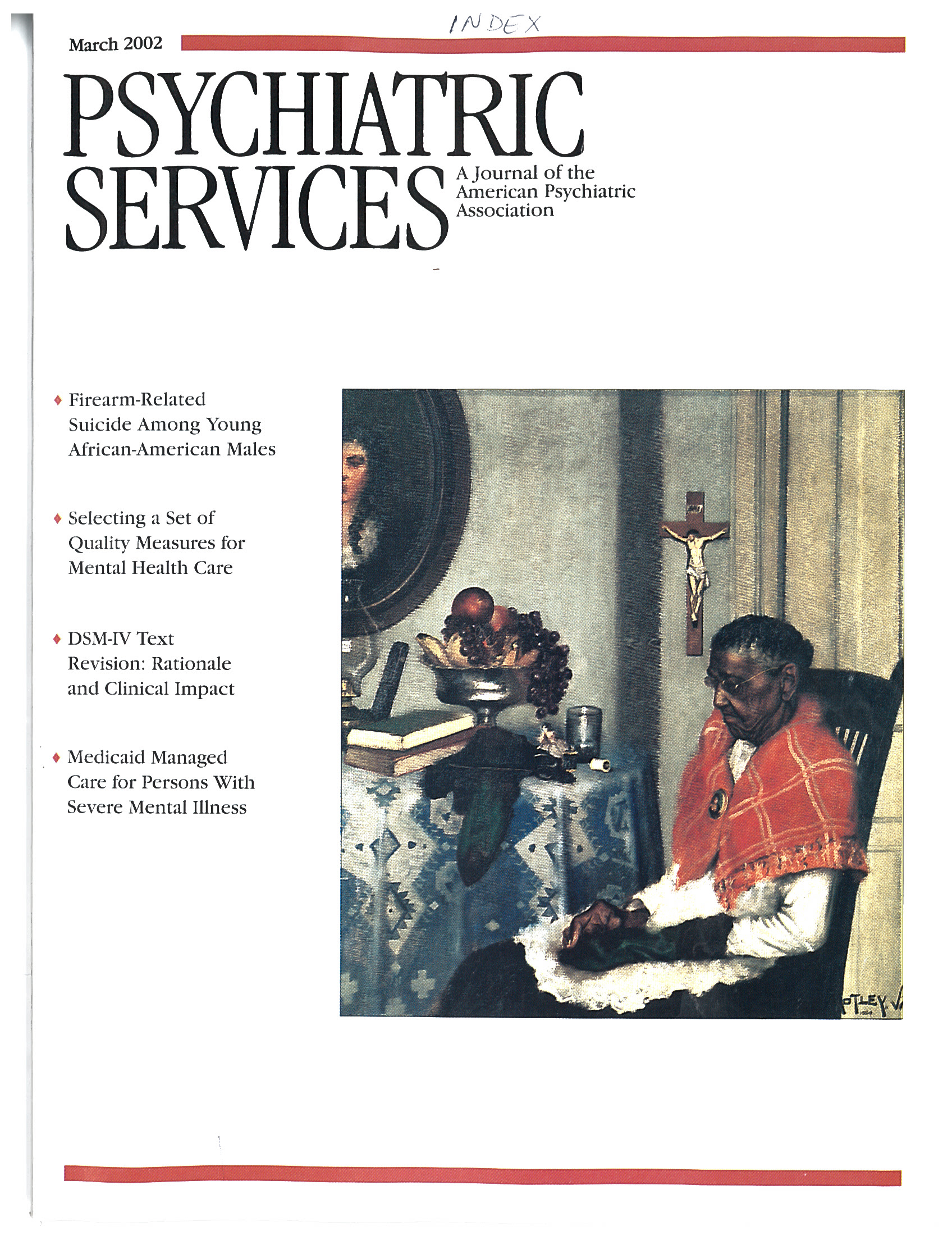To the Editor: In the Veterans Affairs system, there is a growing awareness of the potential problem of fraudulent self-reports of combat experience, which has an impact on the provision of both medical services and benefits. The experiences of veterans' service organizations, such as NAM-POWS, Inc., provide ample anecdotal evidence that some persons fabricate stories of combat heroics and wartime captivity. This problem has also been documented in the mainstream literature, where Burkett and Whitley (
1) have described Vietnam veteran imposters and fraudulent claims of posttraumatic stress disorder (PTSD) in the VA system. There is also empirical evidence that veterans are prone over time to inflate their reports of combat exposure (
2). Veterans evaluated for PTSD in the VA system consistently score at extreme levels of psychopathology across different domains of the Minnesota Multiphasic Personality Inventory-2 (MMPI-2), and they obtain extreme elevations on validity scales for this instrument, suggesting exaggerated reports of symptoms and malingering (
3).
Many people who suffer from severe mental illness experience genuine occupational impairment and related financial hardship (
4). However, the substantial medical services and benefits offered by the VA may serve as incentives for fraud and abuse. In 1996 total compensation and pension expenditures for the VA were estimated to be more than $18 billion; 2.2 million of the surviving 25.4 million veterans (8.9 percent) received some level of service-connected disability benefits (
5). When claims are denied, veterans may appeal the decision an indefinite number of times. Such repeat claims outnumber original claims almost three to one and dominate the VA adjudication system (
5). Furthermore, in a previous study our group found that 69 percent of veterans who seek treatment for PTSD in the VA system apply for psychiatric disability (
3). These "compensation-seeking" veterans obtained much higher elevations on MMPI-2 validity scales associated with symptom malingering than did the "non-compensation-seeking" veterans in the study.
Fraudulent self-reports of combat experience and fraudulent claims constitute a clear problem, which the VA system has not been responsive to. For example, procedures for checking the veracity of combat reports, prisoner of war (POW) status, or even veteran status are often inadequate or not implemented; disability evaluations for PTSD typically do not include state-of-the-art assessment procedures; and attempts by veterans' service organizations to report POW or combat veteran imposters are often ignored or discouraged. This system failure not only costs the VA large sums in terms of medical care and benefits for fraudulent claims, but it also does a great disservice to the legitimate veterans who need and deserve VA care and benefits.
There are relatively painless ways to improve the system. The VA could easily conduct better background checks by using computerized database searches and the Freedom of Information Act. Disability evaluations for PTSD should include appropriate structured interviews and the MMPI-2 validity scales to identify potential malingering. Suspected malingerers should be given a psychophysiological assessment. Although these procedures would increase costs, they should quickly produce much larger savings by reducing fraud and abuse within the system. A major barrier to reducing fraud is the "neither confirm nor deny" attitude of the VA bureaucracy. As long as the VA continues to ignore the problem, fraud and abuse will be perpetuated within the system.

